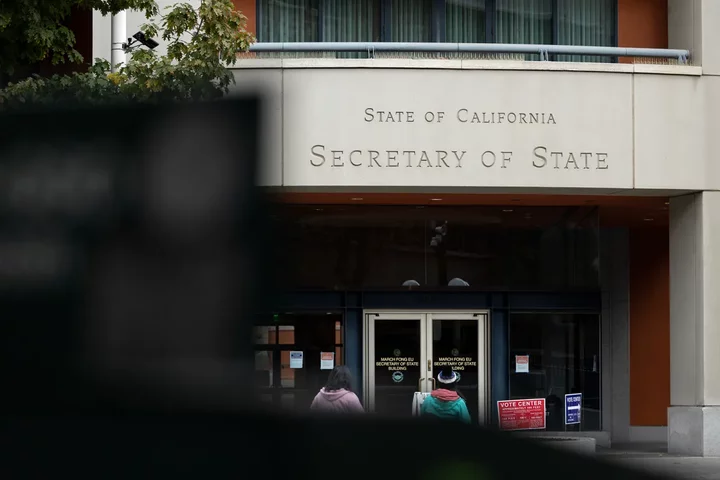The Secretary of State building in Sacramento on Nov. 7, 2022. Photo by Miguel Gutierrez Jr., CalMatters
A proposed California constitutional amendment to permit some aspects of affirmative action won’t appear on the ballot this year because its author feared voters wouldn’t pass the measure — but he also vowed to bring the proposal back for a future state election.
The measure, known as Assembly Constitutional Amendment 7, would not have fully overturned Proposition 209, which state voters passed in 1996 and created the country’s first ban on racial preferences, including affirmative action in public university admissions. Instead, it sought to allow state agencies to send the governor a waiver request to sidestep some of Proposition 209’s restrictions if academic research showed those programs would improve the health, economic or educational outcomes of specific demographic groups.
An effort to undo Proposition 209 was voted down by Californians in 2020.
The proposed amendment was one of 14 priority legislative efforts this year backed by the California Legislative Black Caucus. Those were informed by a state-funded reparations task force report that included more than 100 financial and legal recommendations to combat the legacy of slavery and racism in California.
There are “so many propositions sucking up additional financial resources,” said the measure’s author, Corey Jackson, an Assembymember and Democrat from Moreno Valley, in an interview with CalMatters this evening.
He also cited concern that an anti-crime measure that’s currently on the November ballot will attract fierce opposition to his measure — and to another effort by his peers in the Black Caucus to end forced labor in California prisons. The fundraising challenges to fight one measure and back two others prompted members of the Black Caucus to call off ACA 7 late last week, Jackson said.
As recently as a week ago, his office was signaling that it would push to place the measure on this year’s November ballot by meeting a Thursday deadline for ballot proposals to pass the Legislature. Any constitutional proposal from a lawmaker must pass both chambers of the Legislature, but doesn’t require the governor’s signature.
“He’s (Jackson) still confident he’s going to meet the deadline,” his spokesperson told Calmatters last Wednesday. While the measure cleared the Assembly last year, it languished in the Senate until receiving committee assignments only last week.
Jackson said Tuesday that “there was no doubt in our minds we were going to get it out of the Legislature. The question is: Should we?” Jackson said Democratic leadership supported the proposed amendment.
“The question is when is the right time to do it? Is it 2026? Is it 2028?” Jackson asked. “We have to see where we are in terms of the predictability of our electorate and turnout, as well as what type of political climate we’re in.”
Wenyuan Wu opposed Jackson’s measure. She’s executive director of the Californians for Equal Rights Foundation, a group that opposes race-based interventions because it views such efforts as discriminatory. Wu and other foundation officials played major roles in successfully campaigning against Proposition 16 in 2020.
“We’re very happy that the assemblyman has come to this realization,” Wu said this evening in an interview. It was “not going to be received well on the ballot,” she predicted.
It’s also unclear if a measure like Jackson’s would pass federal court scrutiny given the U.S. Supreme Court’s ban on affirmative action, a legal scholar told CalMatters last year.
###
CalMatters.org is a nonprofit, nonpartisan media venture explaining California policies and politics.

CLICK TO MANAGE